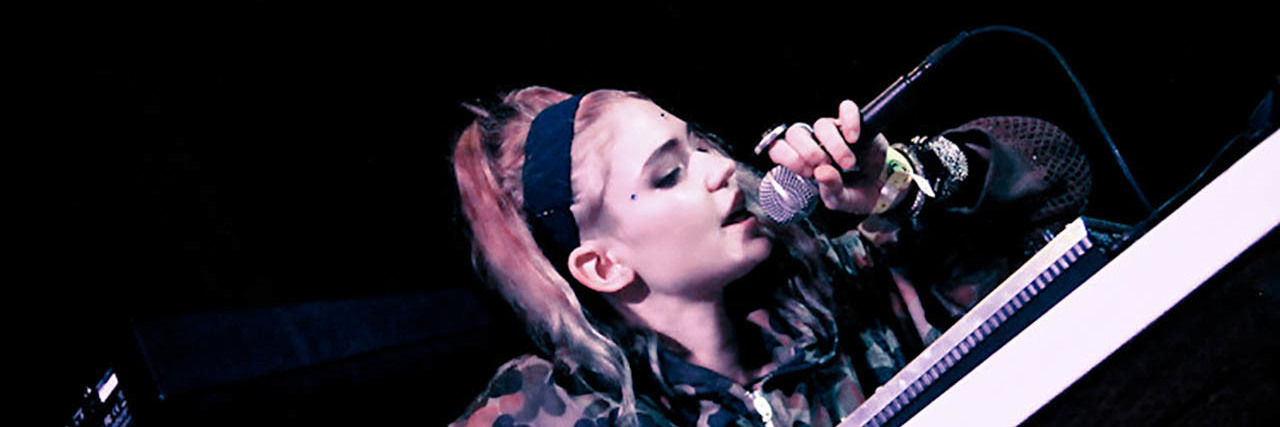Singer Grimes may have just won the award for most “extra” self-care routine. Describing activities that range from “visceral” to an “astro-glide,” it was Grimes’ experimental surgical “cure” for depression that was most eye-opening.
The experimental electronic-pop musician shared her extensive wellness routine during an interview as part of her campaign for Adidas by Stella McCartney. She shared a portion of the interview describing her “360 approach” to training on Instagram, a wild list of activities that include supplements to maximize her cellular production levels, a deprivation tank, sword fighting, neuroplasticity goals and a screaming session.
What perhaps turned most heads about Grimes’ approach to health and wellness was the revelation she received experimental eye surgery to eliminate blue light and “cure” her seasonal depression.
“I have also eliminated all blue light from my vision through an experimental surgery that removes the top film of my eyeball and replaces it with an orange ultra-flex polymer that my friend and I made in the lab this past winter as a means to cure seasonal depression,” she wrote.
According to Mental Health America, there is a connection between blue light and your mental health. Of the three types of photoreceptors that detect light, the third type produces melanopsin, which makes these photoreceptors especially responsive to blue light. This light sensitivity helps regulate your circadian sleep-wake rhythm thanks to the sun.
The sun produces the bluest light during the day, a signal to your brain and body it’s time to wake up. When the sun goes down and blue light decreases, you produce the hormone melatonin, which helps you sleep. Constant extra blue light from screens, TV and other artificial light in the modern-day world interrupts this natural sleep-wake process.
However, blue light doesn’t directly contribute to mood conditions like depression or bipolar disorder. The blue light from your electronic devices signal to your photoreceptors and brain it’s still daytime, interrupting your natural sleep cycle. Using lots of bright screens before bed might make it harder to fall asleep. The disruption to your normal sleeping patterns is a major factor in mood issues like depression. A lack of blue light during the darker winter months can also dampen your mood.
There is no evidence eye surgery to add an orange filter to eliminate your perception of blue light will help for depression. Limiting your use of electronic devices before bed or using a light therapy lamp during the darker months are the typical recommendations if you’re struggling with sleep and your mood.
While it’s entirely possible Grimes’ account of her self-care routine isn’t at all serious and meant to be a joke, Grimes did offer one suggestion you can definitely try:
“I go to bed with a humidifier on.”
For suggestions on how to get better sleep and deal with the symptoms of seasonal depression, check out these Mighty articles:
Image via Creative Commons/neonsighs

